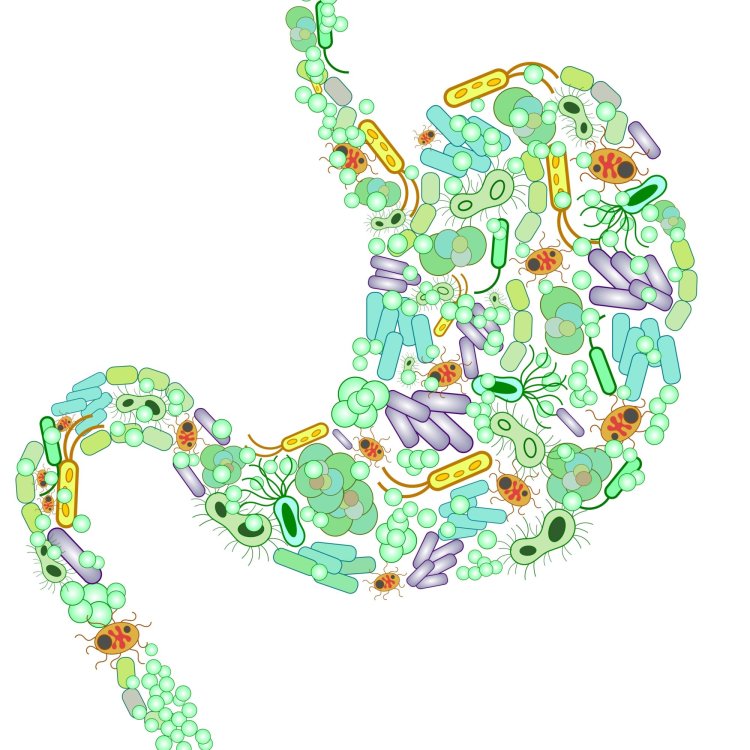Harnessing the Power of Prebiotics and Probiotics: Nourishing Your Gut with Beneficial Nutrients and Microorganisms

The gut microbiome, comprised of trillions of microorganisms living in our digestive tract, plays a crucial role in our overall health and well-being. Among the various factors that influence gut health, prebiotics and probiotics have gained significant attention for their potential to promote a healthy microbiome.
In this blog, we'll explore the difference between prebiotics and probiotics, their respective benefits, and how you can incorporate them into your diet to support gut health.
Understanding Prebiotics and Probiotics
Prebiotics and probiotics are distinct types of dietary components that exert beneficial effects on the gut microbiome:
- Prebiotics: Prebiotics are non-digestible fibers that serve as food for beneficial bacteria in the gut. They pass through the digestive system intact and reach the colon, where they are fermented by gut bacteria. Common sources of prebiotics include certain types of fiber, such as inulin, oligosaccharides, and resistant starch, found in foods like bananas, onions, garlic, asparagus, and whole grains.
- Probiotics: Probiotics are live microorganisms, primarily bacteria and some yeasts, that confer health benefits when consumed in adequate amounts. These beneficial bacteria can help restore and maintain a healthy balance of gut microbiota. Probiotics are naturally present in fermented foods such as yogurt, kefir, kimchi, sauerkraut, and tempeh. They are also available in supplement form.
Benefits of Prebiotics and Probiotics
Both prebiotics and probiotics offer numerous benefits for gut health and overall well-being:
- Improved Digestive Health: Prebiotics and probiotics can help promote regularity, alleviate constipation, and reduce symptoms of digestive disorders such as irritable bowel syndrome (IBS) and inflammatory bowel disease (IBD).
- Enhanced Immune Function: A healthy gut microbiome is closely linked to a robust immune system. Prebiotics and probiotics support immune function by promoting the growth of beneficial bacteria and reducing the proliferation of harmful pathogens.
- Reduced Inflammation: By modulating the composition of gut bacteria and promoting a balanced inflammatory response, prebiotics and probiotics may help reduce inflammation in the gut and throughout the body, potentially lowering the risk of chronic diseases associated with inflammation.
- Improved Nutrient Absorption: A healthy gut microbiome is essential for optimal nutrient absorption. Prebiotics and probiotics support digestive processes, ensuring that essential nutrients are efficiently absorbed and utilized by the body.
Incorporating Prebiotics and Probiotics into Your Diet
To reap the benefits of prebiotics and probiotics, consider incorporating the following dietary strategies into your daily routine:
- Eat a Variety of Fiber-Rich Foods: Consume a diverse array of fruits, vegetables, legumes, and whole grains to ensure you're getting a range of prebiotic fibers to nourish your gut microbiota.
- Include Fermented Foods: Incorporate fermented foods like yogurt, kefir, kombucha, sauerkraut, and miso into your diet regularly to introduce beneficial probiotic bacteria.
- Consider Probiotic Supplements: If you're unable to consume enough probiotic-rich foods, consider taking a high-quality probiotic supplement containing a variety of beneficial strains.
- Prebiotic Supplements: In addition to dietary sources, prebiotic supplements are available and can be taken to support gut health, particularly if your diet is lacking in prebiotic-rich foods.
CONCLUSION
Prebiotics and probiotics play complementary roles in supporting a healthy gut microbiome and overall well-being. By incorporating prebiotic-rich foods, probiotic-rich foods, and supplements into your diet, you can nourish your gut with beneficial nutrients and microorganisms, promoting digestive health, immune function, and inflammation modulation.
As always, it's essential to maintain a balanced diet and lifestyle to support optimal gut health and overall wellness. If you have specific digestive concerns or health conditions, consult with a healthcare professional or registered dietitian for personalized recommendations.
What's Your Reaction?


















